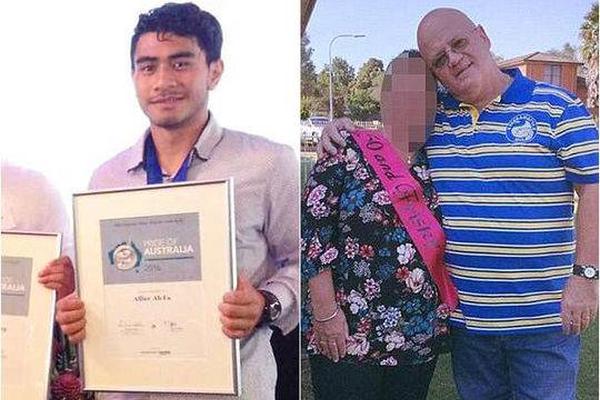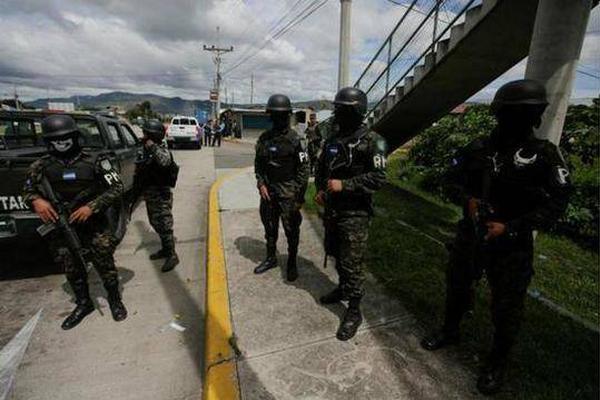The Romance ArchivesFBI quietly developed a facial recognition network that allows law enforcement to identify people in the United States without their knowledge.
Now lawmakers want to know why the agency didn't tell people about it.
SEE ALSO: This creepy Facebook stalking app was a hoax—but it should still scare the hell out of you"Why did the FBI not fulfill the requirement of the law?" asked House Oversight Committee chairman Jason Chaffetz at a hearing on Wednesday.
The FBI didn't let citizens know the agency was collecting photos from motor vehicle departments, according to a report from the Government Accountability Office. And a lotof people can be found on law enforcement facial recognition networks -- around half of American adults, according to a study from Georgetown University's Center on Privacy and Technology.
At the hearing, House members hit on a bunch of topics with Kimberly Del Greco, the FBI's deputy assistant director of the Criminal Justice Information Services Division.
Here are three of the most alarming issues from the hearing.
Elijah Cummings, a Democrat from Maryland who lives in Baltimore, was more than a little worried about the Georgetown study, which showed facial recognition was less accurate when trying to identify black people.
“If you’re black, you’re more likely to be subjected to this technology, and the technology is more likely to be wrong," he said. "That’s a hell of a combination.”
Chaffetz was angry that the FBI didn't disclose its program to the public, but he seemed OK with it being used to single out undocumented immigrants. His comments from early in the hearing, via Gizmodo:
"The technology will also show us, the statistical data will show us, the bigger the database, the more difficult it is for the facial recognition technology to get it right. If the database was smaller to known criminals, wanted criminals, people that are here illegally, maybe those are the types of things that we should be focused on."
 Jason Chaffetz, looking grumpy. Credit: Reynolds/Epa/REX/Shutterstock
Jason Chaffetz, looking grumpy. Credit: Reynolds/Epa/REX/Shutterstock Rep. Paul Mitchell, a Republican from Michigan, seemed personally offended by the lack of disclosure.
"I wasn't informed that when my driver's license was renewed, my photograph was going to be in a repository that could be searched by law enforcement across the country," he said.
Rep. John Duncan worried the U.S. was becoming a "federal police state," but he needn't have mentioned "federal." Major local police departments are already using the technology. Some are exploring "real time" facial recognition synced with surveillance cameras.
Overall, several representatives felt this was the number one problem: the FBI didn't really tell anyone they were using facial recognition. The Department of Justice created a "privacy impact assessment" in 2008 and is legally required to update the assessment "whenever agencies develop technologies that collect personal information," according to the GAO report. That didn't happen.
Despite the outrage in Congress today, one of the hearing's conclusions was that the FBI will "continue to pursue" what's called a "memorandum of understanding" with motor vehicle departments across the country to add driver's license photos to their database.
They've already obtained such understandings with 18 states.
Topics Cybersecurity Facial Recognition Privacy
(Editor: {typename type="name"/})
 Greenpeace activists charged after unfurling 'Resist' banner at Trump Tower in Chicago
Greenpeace activists charged after unfurling 'Resist' banner at Trump Tower in Chicago
 Xiaomi 13 Ultra is out in Europe
Xiaomi 13 Ultra is out in Europe
 Trump's 'spiritual adviser' goes viral in Twitter clip, prompts remixes
Trump's 'spiritual adviser' goes viral in Twitter clip, prompts remixes
 Spotify is testing an 'Offline Mix' playlist for times when signals are spotty
Spotify is testing an 'Offline Mix' playlist for times when signals are spotty
 Clean energy projects soared in 2016 as solar and wind got cheaper
Clean energy projects soared in 2016 as solar and wind got cheaper
'The Traitors' Season 3's latest banishment has me fuming
 It's been a long time since an episode of TV has made me as flat-out angry as The Traitors Season 3,
...[Details]
It's been a long time since an episode of TV has made me as flat-out angry as The Traitors Season 3,
...[Details]
Tender Spirits: A Conversation with Marie
 Tender Spirits: A Conversation with Marie-Helene BertinoBy Jessica GrossJanuary 16, 2013At WorkIn Oc
...[Details]
Tender Spirits: A Conversation with Marie-Helene BertinoBy Jessica GrossJanuary 16, 2013At WorkIn Oc
...[Details]
 “Psalm 139”By Lorin SteinJanuary 7, 2013The Poem Stuck in My HeadIf you grew up going to church, you
...[Details]
“Psalm 139”By Lorin SteinJanuary 7, 2013The Poem Stuck in My HeadIf you grew up going to church, you
...[Details]
13 of the nicest moments from Election Day
 Election night has arrived, which means you're likely feeling anxious as hell as we wait for results
...[Details]
Election night has arrived, which means you're likely feeling anxious as hell as we wait for results
...[Details]
Man City vs. Real Madrid 2025 livestream: Watch Champions League for free
 TL;DR:Watch Man City vs. Real Madrid in the Champions League for free with a 30-day trial of Prime V
...[Details]
TL;DR:Watch Man City vs. Real Madrid in the Champions League for free with a 30-day trial of Prime V
...[Details]
What We’re Loving: Tropical Paradise, Anxiety, Translation by The Paris Review
 What We’re Loving: Tropical Paradise, Anxiety, TranslationBy The Paris ReviewJanuary 18, 2013This We
...[Details]
What We’re Loving: Tropical Paradise, Anxiety, TranslationBy The Paris ReviewJanuary 18, 2013This We
...[Details]
Hilarious Pennsylvania memes flood Twitter after Biden takes lead
 Joe Biden hasn't officiallywon Pennsylvania as of Friday morning, but he has pulled ahead and it loo
...[Details]
Joe Biden hasn't officiallywon Pennsylvania as of Friday morning, but he has pulled ahead and it loo
...[Details]
Lost Ferraris, and Other News by Sadie Stein
 Lost Ferraris, and Other NewsBy Sadie SteinJanuary 10, 2013On the ShelfHave you written a novel̵
...[Details]
Lost Ferraris, and Other NewsBy Sadie SteinJanuary 10, 2013On the ShelfHave you written a novel̵
...[Details]
Ms. Frizzle spotted at Science Marches across the globe
 The Magic School Bus took some very important field trips this Earth Day, making stops at Marches fo
...[Details]
The Magic School Bus took some very important field trips this Earth Day, making stops at Marches fo
...[Details]
Sharon Olds, “Diagnosis” by Sadie Stein
 Sharon Olds, “Diagnosis”By Sadie SteinJanuary 17, 2013Video & MultimediaSharon Olds has won the
...[Details]
Sharon Olds, “Diagnosis”By Sadie SteinJanuary 17, 2013Video & MultimediaSharon Olds has won the
...[Details]
Best Dyson deal: Save over $100 on Dyson V11 Origin cordless vacuum

Reddit blackout: What's happening and why

接受PR>=1、BR>=1,流量相当,内容相关类链接。